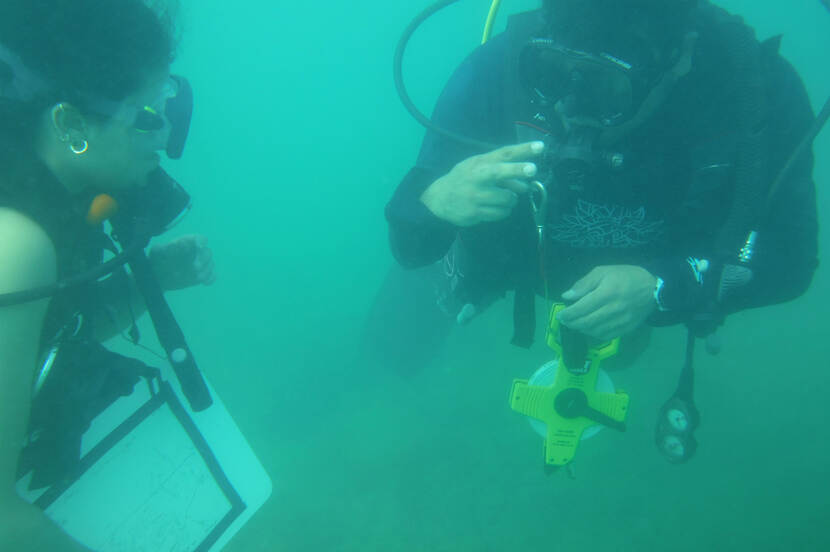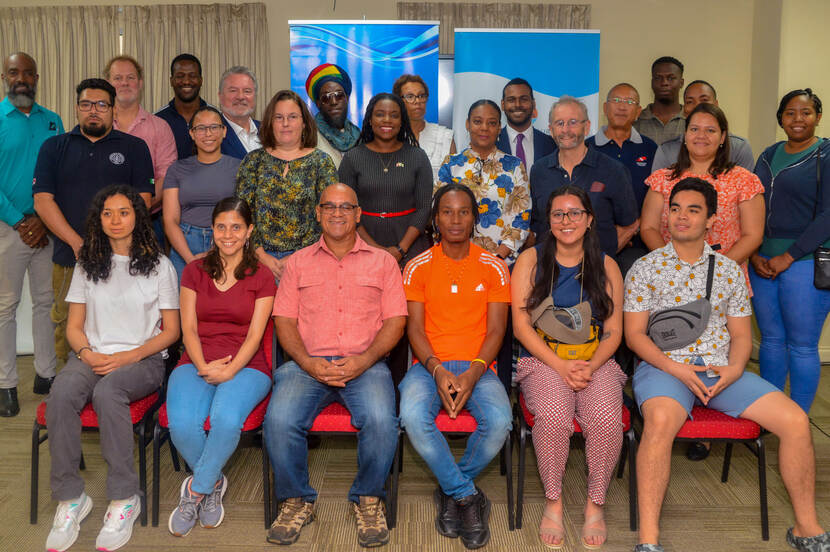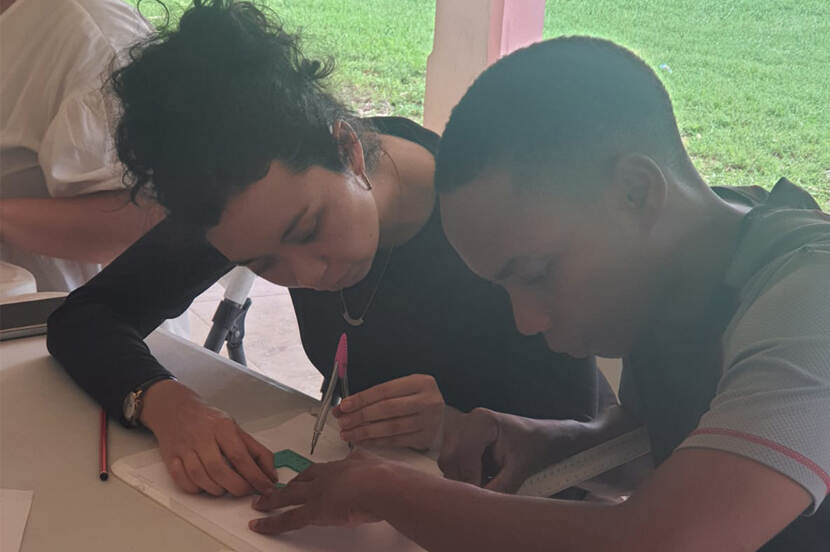Field school on maritime archaeology in Tobago
Weblog
The UNESCO Training on the Protection and Management of Underwater Cultural Heritage in Tobago has started. Thirteen students from Mexico, Aruba, Costa Rica, Colombia, Honduras, Guatemala, Jamaica, Curacao, Suriname and Trinidad and Tobago first followed a theoretical training on – amongst others - recording, shipbuilding and management. During the second part, they started their dive activities by assessing the site and make a management plan that could be beneficial in the future.
The focus of this UNESCO (United Nations Educational, Scientific and Cultural Organization) training lies on the importance of making sure that there will be a new generation of underwater archaeologists and cultural heritage managers available for the coming decades. They will need to take over this challenging task from the first and second generation of underwater archaeologists in the region. A task that is extra challenging due to the climate change, energy transition and sea level rise.

A challenging research site
Rockley Bay, the site where this training is taking place, is near the harbour of Scarborough in Tobago. The site is under investigation by the Rockley Bay Research Project of the Institute for Nautical Archaeology in the US, led by Dr. Kroum Batchvarov. The position of the site, officially called TRB-5, was kindly provided by him.
Although found in shallow waters, the site is by no means an easy one to work at. Relatively bad visibility and swells make measuring quite challenging. For example, the remnants of the ship are laying on a vulnerable and old coral reef and are covered by a thin crust that looks like concretion. Yet some human made objects like a canon, bricks and ballast stones remained and are still recognizable. Some other human made objects still have to be researched in order to determine what these objects are. This challenge, which will only become more difficult due to climate change, energy transition and sea level rise, makes for a valuable experience for the students, who will be ready to enter the underwater archaeology field in no time.

Guiding the future archaeologists
Of course, the students are not alone. The dive operations are being coordinated by Undersea Tobago, a local dive company led by Derek Chung. The coordinators of the course Chris Underwood (president of ICOMOS (International Council on Monuments and Sites) ICUCH (International Committee on the Underwater Cultural Heritage) and Prof. Martijn Manders (Cultural Heritage Agency of the Netherlands (RCE), assisted by trainer-trainees Jasinth Simpson and Cimberly Symister, are delighted by the progress of the teams. According to them, it clearly shows the enormous potential for the utilisation of underwater cultural heritage management, archaeological research and even heritage tourism in the region.

UNESCO Field school
Although underwater cultural heritage is invisible for most people, it is an important part of the joint Caribbean past and it links up the area with other parts of the world. From 20 November through 8 December 2023, UNESCO and the RCE organise this field school to train local archaeologists in taking care of this underwater cultural heritage for future generations. The RCE finances this field school as part of its International Heritage Cooperation Programme.